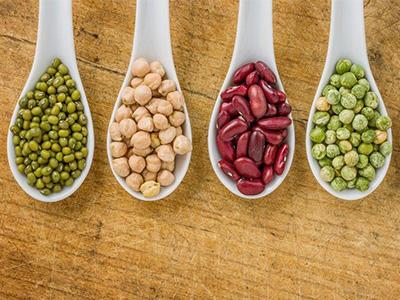
Work Package Healthy Diets and Dietary Choice
Introduction
Dietary intake is a major contributing factor for most of the common health problems that affect the general population, including overweight, type 2 diabetes, gut disorders, cardiovascular disease, cancer and mental health. While many of these conditions represent an increasing burden in the ageing population, nutrition during childhood and early development, beginning in the womb, is known to exert an important influence on health in later life. Digestible dietary components (most proteins, fats, carbohydrates and micronutrients) influence metabolism and health following their absorption into the systemic circulation from the upper intestinal tract, but the diet also contains non-digestible components such as fibre that are used by the microbes that live in our intestines (“gut microbiota”). Interactions between the host and the resident gut microbiota are now known to play a role in multiple health outcomes, including metabolic syndrome and intestinal disorders. There has to be a rebalancing of the Scottish population’s dietary intake to achieve Scotland’s aspiration to become a Good Food Nation.
Aim of Research
The current crisis in public health (obesity, diabetes, cardiovascular disease, stroke and some cancers) is strongly rooted in an imbalance in dietary components. A healthy balanced diet not only requires reductions in fat, salt, sugar, and in overall calorie intake, but also an increase in fibre and an appropriate level of protein intake. The aim of this RD is to strengthen our understanding of the role of dietary components (in particular fibre and protein) in a healthy diet. The information gained from this research will lead to better policy advice, particularly in relation to healthy weight management, metabolic control, mental health and intestinal health.
Progress
The SRP recovery activities in year 6 have enabled the completion of all objectives that were delayed due to the pandemic shutdown. Some human studies had to be completed with fewer volunteers than originally planned, but the data will still provide valuable pilot results for follow-on work. Human intervention studies on dietary macronutrients have provided evidence on the role of dietary protein to support satiety, which is useful to combat obesity, and the dietary fibre work has been carried forward to examine the mechanisms in the next programme. Furthermore, a meta-analysis of previous Rowett dietary studies showed the importance of protein and fibre content of meals in determining glucose response. A study comparing wheat- and barley-based diets showed that increased intakes of both fibre types were well tolerated but had limited impact on microbiota composition and did not change human health markers. The impact of excluding dietary fibre on the human microbiota and host inflammatory status was described in children with Crohn's disease and a human study in the elderly with wheat-derived fibre AXOS showed major inter-individual differences, highlighting the potential importance of personalised nutrition. Human and animal work also provided evidence on the link between diet and cognition.
The completion of laboratory-based studies also provided important insights on the effects of dietary compounds on health. Work on the effect of bile acids on the microbiota improves our understanding of the health implications of high fat diets. Human gut bacteria were identified that convert dietary choline to trimethylamine as well as lactate-utilising bacteria, strains with immune system modulatory traits, strains with antimicrobial activity against pathogens, and strains with key fibre degrading activities. These bacteria are therefore highly promising targets for preventative and therapeutic manipulations and the work informs future attempts to alter the gut microbiota via diet. This work also underpins projects in the next RESAS programme on the animal microbiome and insoluble fibre fermentation. The demonstration of gut microbial mycotoxin release has informed policy at European level and informed research in the next programme.
Highlights
- Publication of scientific reviews: Theme researchers co-authored a review article in a high impact journal (FEMS Microbiology Reviews; May-21) on the links between the gut microbiota, host immunity, and infections with the fungal pathogen Candida albicans. A review on microbial lactate utilisation and the stability of the gut microbiome was published in the journal Gut Microbiome and a theme researcher co-authored a review on the interaction of plant-based diets and gut microbiota for the Alpro Foundation which led to a Let’s Gut REAL podcast Are plant-based diets best for your gut microbiome?
- Public engagement: Theme researchers contributed a series of videos for World Microbiome Day (Jun-21) on the topic of microbiota-directed food formulation.
- Highly cited research: Five Theme scientists in microbiota research were included in the 2021 Clarivate Analytics Highly Cited Researchers list of scientists, recognizing the true pioneers in their fields over the last decade, demonstrated by the production of multiple highly-cited papers that rank in the top 1% by citations for field and year.
- International conference organisation: RESAS Scientists have co-organised the 12th International Symposium on Gut Microbiology in October 2021, chaired Scientific Sessions and contributed to oral and poster presentations.
- Presentations: Theme researchers gave several invited presentations, including at the 8th Microbiome R&D & Business Collaboration Forum (May-21) on the continued importance of bacterial culture for gut microbiome research and at the 7th International Conference on Food Digestion on the Influence of diet on the gut microbiota at different lifestages (May-22).
- Funding success: The Rowett Institute have been awarded three years funding (March 2021) £1.6M from BBSRC (BB/W018020/1) to lead a new study, called FIO FOOD, to investigate the role of food inequalities and obesity, with emphasis on the retail food environment. This work is funded by the Transforming UK Food systems, Strategic Priorities Fund, to provide actionable evidence for policy on retail strategies to address dietary inequalities in people living with obesity and food insecurity, to support sustainable and healthier food choices in the UK food system. The project offers interdisciplinary research focussing on food systems research, using ‘Big Data’ qualitative and quantitative approaches to engaging people with the lived experience. This will allow us to develop practical solutions to promote sustainable and healthy food choices for this group of people.
The extended laboratory shutdown in year 5 has delayed progress, with the human intervention studies particularly affected. However, progress has been made with sample processing and analysis, and outputs are emerging where data could be unblinded. Thus, we have demonstrated that breakfast composition can influence appetite, whereby high-protein meals are more satiating. Furthermore, a high-fibre morning meal contributed positively to gut health, as assessed by faecal microbiota composition and activity. Rodent model work complementing the human work provided insights into how fibre intake affects host physiology, including cognition and memory in the brain. A COVID-replacement project included in the programme assessed the faecal microbiota and microbial metabolites produced when subjects follow a meat-based or soya-based diet, which indicated that plant-based high protein diets result in faecal metabolites that are less problematic for intestinal health than meat-based diets. Manuscripts covering the results of a feeding study of arabinoxylan oligosaccharides in elderly volunteers and on the impact of excluding dietary fibres in children with Crohn's disease have now been published in scientific journals.
Work on intestinal absorption of mycotoxins has confirmed that masked mycotoxins are not absorbed, while all free mycotoxins and microbial metabolites tested are readily absorbed in the gut and could add to overall exposure in humans. In vitro studies on gut bacteria indicate that detrimental trimethylamine production is driven by a relatively small number of key bacterial species, which represent promising targets for interventions designed to lower intestinal TMA production. Work on the effect of bile acids indicates that different types of bile acids can inhibit the growth of a range of potentially beneficial gut bacteria, such as butyrate producers and commonly used probiotic taxa, while potential pathogens from bacterial groups appear to be inherently more resistant to bile. These results therefore have potential implications for host health, as they suggest that increased bile acid concentrations in the gut, which can result from consumption of a high fat diet, may be detrimental for gut microbiota health. Some of the ongoing research on fibre-degrading bacteria, lactate metabolism and mathematical modelling has been published.
Highlights
- Stakeholder engagement and presentations: Researchers gave several presentations, including (i) at the Nutrition Society Summer Conference (Jul-20) on protein metabolism by human gut bacteria and health impacts, and on health benefits of plant-based diets on colonic microbiota and metabolites in obese subjects; (ii) at the Wellcome Trust Scientific Conference “Exploring Human Host-Microbiome Interactions in Health and Disease” on lactate-utilising bacteria as potential next generation probiotics (Oct-20); (iii) at the Nutrition Society Spring Conference (Mar-21) on dietary influence on functional groups of the gut microbiota and on gut microbiota metabolism of food-derived mycotoxins; (iv) at the Keystone Symposium “Harnessing the Microbiome for Disease Prevention and Therapy” (Jan-21) on Implications of gut microbiota variability for dietary and therapeutic interventions (v) at a webinar on Anaerobic culture of the normal human intestinal microbiota organised by Don Whitley Scientific (Jun-21).
- Funding success: Innovate UK funding (£316k) was secured for a translational project supporting the microbiome therapeutic company, EnteroBiotix, in new product development, applying SRP expertise to microbiome modulating therapeutics.
- Publications: Theme researchers published papers, including (i) the public health rationale for promoting plant protein as an important part of a sustainable and healthy diet; (ii) the important role that lactate-utilizing bacteria play for maintenance of stability within the microbial community in the human gut, and (iii) identifying human gut bacteria that are involved in mycotoxin metabolism.
- Highly cited research: Four Theme scientists in microbiota research were included in the 2020 Clarivate Analytics Highly Cited Researchers list of scientists, recognizing the true pioneers in their fields over the last decade, demonstrated by the production of multiple highly-cited papers that rank in the top 1% by citations for field and year in the Web of ScienceTM.
- SEFARI website: Two Blogs (‘Barking up the right tree’ on human gut bacterial metabolism of Spruce tree gums; ‘Food for thought’ – on Alzheimer’s disease and the food-gut-brain axis) and a Case Study (‘Protein for Life – supporting healthy ageing in partnership with the food sector’ were published.
The research programme overall is making good progress, but several objectives could not be completed as originally projected due to the Covid-19 laboratory shutdown. Five human dietary intervention studies are being conducted at present, investigating the effect of meal size and/or dietary composition on satiety, health parameters such as inflammatory status, mental health and intestinal health including effects on the gut microbiota. Emerging results from the intervention trial on the effect of meal size and dietary macronutrient composition have revealed that high protein meals elicit enhanced satiety, whereas high-fibre diets resulted in more favourable gut microbial profiles. The beneficial effect of fibre is further supported by the on-going animal studies, where fibre was found to improve liver metabolism and affect brain physiology. Preliminary data from the trial of dietary effects on Alzheimer's disease pathology in an ageing population indicate that bacterial activity was different between healthy and diseased subjects.
The in vitro studies are revealing novel insights into the interplay between diet, microbiota and human health. The immune-stimulating capacity of some bacteria from the Rowett collection was investigated in collaboration with Prof. Ahmed Hegazy (Berlin, Germany), which indicated that certain lactate-utilising bacteria or their metabolic products may contribute to pathogen killing in the gut. Microbial metabolism and detoxification of mycotoxins by human gut commensal bacteria was assessed and important gut bacteria were found that can partially degrade the potent mycotoxin T2. Intestinal absorption of microbial mycotoxin metabolites through the gut epithelium was demonstrated in vitro, further highlighting the biological relevance of these microbial transformations in the gut. Studies on the fibre degradation capacity of human gut microbes have identified species with important characteristics for microbially mediated dietary health effects. This includes in-depth characterisation of the dominant species Eubacterium rectale, the establishment of Coprococcus eutactus as a beta-glucan-fermenting species and the isolation of a range of novel fibre-degraders, primarily Prevotella species. Progress has also been made with extending the computer model of gut microbial metabolism and initial network analyses have highlighted the importance of the metabolite lactate to the overall functioning of the microbial ecosytem.
Highlights
- Stakeholder Engagement and Presentations: Theme research was showcased (i) in a tutorial and research talk at a summer school in Leuven on Microbial Community Modelling, (ii) at the Advancia Academy – IHSIG 2019 in Rome, (iii) at the Congress on Gastrointestinal Function 2019 in Chicago on dietary modulation of gut microbial metabolism, (iv) at two Royal College of Psychiatrists conference’s (London - September 2019 and Glasgow - March 2020) to present SEFARI-related work on the food-gut-brain axis in Alzheimer’s disease to highlight future research perspectives, and (v) at the World Mycotoxin Forum & IUPAC International Symposium on Mycotoxins, Belfast, UK, October 2019 on microbial hydrolysis and metabolism of mycotoxins by intestinal microbiota.
- Contribution to Expert panels: Invitation of a Theme scientist to the Microbiome expert panel meeting hosted by the European Centre for Ecotoxicology and Toxicology of Chemicals, Porto, Portugal, July 2019. Presentation title: Analysis of gut microbial xenobiotic metabolism.
- Publications: Theme researchers published a high profile paper on the rumen metagenome in Nature Biotechnology, which gave rise to press coverage, identifying the vital need to be able to grow more rumen bacteria types in the laboratory. This work increases understanding of how to alter rumen feed conversion or methane emissions, to help tackle livestock sustainability.
- Funding leverage success: A researcher was awarded a MRC Nutrition ‘Hot Topic’ workshop grant (£10k) on ‘Reshaping the food environment: applying interdisciplinary perspectives in appetite research’, to develop cross-disciplinary research ideas for future funding.
- Highly cited research: Four Theme scientists in microbiota research were included in the 2019 Clarivate Analytics Highly Cited Researchers list of scientists ‘who produced multiple papers ranking in the top 1% by citations for their field and year of publication, demonstrating significant research influence among their peers’.
The research continues to provide novel insights that will lead to improved policy advice. The human intervention study on satiety and weight loss is complete and preliminary results indicate differences between protein- and carbohydrate-rich diets. Further data analysis is on-going. Four further human dietary trials have commenced and are progressing well. The animal work shows that fibre types differ in their effect on the host. The in vitro work has led to a better understanding of bacteria involved in metabolic reactions that influence host health, including mycotoxin release, trimethylamine production, lactate metabolism and non-digestible carbohydrate breakdown.
Highlights:
- ‘Feed Your Imagination’: A public engagement event at a restaurant near Aberdeen highlighted SRP research on diet and health. The format was novel - a ‘make your own dinner’ - with nutrition guidance to ‘feed the gut’ and ‘feed the brain’, engaging the lay audience about the role of a healthy, safe diet. The event was sold out with evaluation forms highlighting that the topics and Q&A session were particularly informative for a public audience.
- ‘Protein for life’: food reformulation for sustainable and healthy diets: A published review of the protein needs of an ageing population, which was an output from the ‘Priming Food Partnership’ RCUK initiative, will assist food industry stakeholders (e.g. membership organisations, individual companies) in the development of foods that take account of the protein needs of an ageing population, and the appetite-related implications of diets high in proteins, and that utilise environmentally sustainable plant protein sources.
- MRC funded project grant: Building on SRP expertise, SEFARI scientists are collaborators on a grant examining the role of dietary emulsifiers (soya lecithin) on markers of gut health and metabolic health. This is a collaborative multi-disciplinary approach to investigate ingestion of emulsifiers (also known as surfactants or detergents) within the modern ‘Western’ diet.
- Global Challenges Research Fund (GCRF) Hub grant award: Theme scientists are key members (incl. the deputy lead) of and bring knowledge and expertise acquired through the SRP to a 5-year GCRF Hub grant led by the London International Development Centre (LIDC) and the London School of Hygiene & Tropical Medicine (LSHTM). The new £19.76m UKRI GCRF ‘Action against Stunting Hub’ (including >£1m to SEFARI research in epigenetics and microbiota) brings together an interdisciplinary team from 18 institutions to tackle the problem of stunting in children. It aims to reduce child stunting by up to 10% across communities in India, Indonesia and Senegal, and it will also support new regional platforms on maternal and child nutrition proposed by UNICEF, linking the work of the Food and Agriculture Organisation, The World Bank, and the World Health Organization at the country level.
- Highly cited research: Three Theme scientists in microbiota research were included in the 2018 Clarivate Analytics Highly Cited Researchers list of scientists ‘who have demonstrated significant influence through publication of multiple highly cited papers during the last decade’.
Research is progressing well and has already contributed to several scientific publications. Two human studies (protein-rich vs fibre-rich meals and wholegrain intervention) are on-going and on target. A rodent study on fibre-rich diets revealed gut changes that indicate enhanced bacterial activity. Good progress has been made in identifying and isolating gut bacteria that are responsible for fibre, trimethylamine and lactate metabolism, and the effect of lactate on the microbiota has been successfully incorporated into our mathematical model. Work has also started on investigating the role of the gut microbiota in mycotoxin breakdown.
Highlights:
- A new concept in nutrition research is how time of day affects the metabolism of our food. Eating more of our food calories in the morning may be better for us than the equivalent consumption in the evening. A new award from MRC (£775K) to investigate how the timing of eating affects healthy weight management will inform and augment on-going work being carried out in the SRP.
- Accumulation of lactate in the human gut has been linked to conditions such as inflammatory bowel disease, so there is considerable interest in identifying gut bacteria that can convert lactate into products that are beneficial for health. Researchers have identified key lactate utilising bacteria from the human gut and measured their capacity to convert this potentially toxic product into butyrate, thought to be protective against inflammation and colorectal cancer.
- Shotgun metagenomics transforming microbiology research: A SEFARI scientist co-authored a review (Quince et al. 2017 Nature Biotechnology. 35, 833 – 844) discussing the current state-of-the-art, and best practices for shotgun metagenomics studies. This approach, which may be used in the SRP to determine the microbial community of the gut microbiota in response to dietary fibre, has revolutionised genomic analysis. It enables all microbes in a sample to be sequenced and not just those that are easily cultivated, thus providing a more accurate representation of microbial diversity.
- Public and Stakeholder Engagement activities: Examples - (i) a workshop entitled "Harvesting for Health" at the Edinburgh International Science Festival (April 2017), featuring activities and hourly talks on the effects of dietary fibre on cardiovascular health. This was very well attended with around 400 visitors over 2 days; (ii) an interactive exhibit over the 4 days of the Royal Highland Show focussed on good and bad microbes and linked with complementary SEFARI displays on food microbes and detection of pathogens.
- SEFARI oats research: The ‘Superfoods’ programme on Channel 4 highlighted SEFARI research on oats, and why oats are healthy. The main focus was on the action of soluble beta-glucan fibre to reduce blood pressure and cholesterol. Recipes in the SEFARI-produced ‘Go with the Grain’ cook book were showcased.
- Microbial metabolism in the gut: A mathematical model which predicts the dynamics and interactions of microbial functional groups, has been refined and made available to the research community in a user-friendly format in the statistical software package R.
Good progress has been made in year one on all objectives. Recruitment of volunteers for the human study investigating the role of diet composition in healthy weight management is underway. Rodent work complements these studies and there are early indications that there is a link between intake of the dietary fibre, pectin, and satiety. We have developed assays for measuring compounds linked to cardiovascular disease and have begun to identify the bacteria responsible for the production of these compounds. Bacteria involved in the degradation of specific fibres have been identified and novel isolates obtained, which will be further characterised in year 2. Methods have been developed for molecular analysis of these bacteria during mixed culture work in year 2. A mathematical model developed to simulate how gut bacteria compete for substrates has been refined to model the conditions in the human gut more closely.
Highlights:
- An RD3.2.2 researcher was awarded a BBRSC pump grant (“Protein for Life: Towards a Focused Dietary Framework for Healthy Ageing”) to develop pre-competitive partnerships between industry and academia in the area of sustainable plant protein sources, drawing on RESAS work in the current SRP.
Future Activities
Work carried out on the role of dietary components (in particular fibre and protein) in a healthy diet forms the basis for several studies in the next programme: a B7 project (RI-B7-01) to explore healthy diets for a healthy weight, with focus on exploring the physiological mechanisms related to dietary fibre and non-nutritive sweeteners and a complementary project (RI-B7-08) to understand how dietary fibre reduces food intake and adiposity, as pre-clinical work to support the planned human studies. Another B7 project (RI-B7-02) will investigate the revalorisation potential of agricultural waste materials into a sustainable source of health-promoting dietary fibre.
Highly topical work on gut microbial mycotoxin release will be further developed through a RESAS funded PhD studentship by exploring the potential of the human gut microbiota to modify mycotoxins to render them less toxic. Mycotoxin contamination in the cereal supply chain and human exposure will also be assessed in the new programme to inform risk analysis (RI-B5-01).
Other research from RD3.2.2, in particular the isolation and characterisation of novel bacteria from the cattle rumen, and the consolidation of the Rowett’s bacterial culture collection, forms the essential platform for plans in the new programme to identify gut microbes with the greatest potential for inhibiting a range of important infectious agents of humans and animals, including multi-drug resistant pathogens. We will further investigate the carriage and transfer of antibiotic and heavy metal resistance genes between members of the resident anaerobic microbiota, focussing on the presence of similar genes in diverse bacteria species, including pathogens in the new SRP 2022/27 (RI-A2-01, RI-A2-02 & RI-B6-01).
Selected Outputs
Publications
2016/17
Masked trichothecene and zearalenone mycotoxins withstand digestion and absorption in the upper GI tract but are efficiently hydrolysed by human gut microbiota in vitro. (2016) – paper published in Molecular Nutrition & Food Research by Silvia Gratz et al.
2017/18
Shotgun metagenomics, from sampling to analysis. (2017) – paper published in Nature Biotechnology by Christopher Quince et al.
microPop: Modelling microbial populations and communities in R. (2017) – paper published in Methods in Ecology and Evolution by Helen Kettle et al.
Protein for Life: Review of Optimal Protein Intake, Sustainable Dietary Sources and the Effect on Appetite in Ageing Adults. (2018) – a review published in Nutrients by Marta Lonnie et al.
Effect of nonmeat, high-protein supplementation on quality of life and clinical outcomes in older residents of care homes: a systematic review and meta-analysis. (2018) – review published in Nutrition Reviews by Alison Donaldson et al.
Porcine small and large intestinal microbiota rapidly hydrolyze the masked mycotoxin deoxynivalenol-3-glucoside. (2018) – paper published in Applied and Environmental Microbiology by Silvia Gratz et al
Prebiotic potential of pectin and pectic oligosaccharides to promote anti-inflammatory commensal bacteria in the human colon. (2017) – paper published in FEMS Microbiology Ecology by Wing Sun Faith Chung et al
Sporulation capability and amylosome conservation among diverse human colonic and rumen isolates of the keystone starch-degrader Ruminococcus bromii. (2017) – paper published in Environmental Microbiology by Indrani Mukhopadhya et al
16S sequencing and functional analysis of the fecal microbiome during treatment of newly diagnosed pediatric inflammatory bowel disease. (2017) – paper published in Medicine by Ashton James et al
2019/20
Hydrolysis and metabolism of diacetoxyscripenol-glucoside, HT-2-glucoside and N-(1-deoxy-D-fructos-1-yl) fumonisin B1 by human gut microbiota in vitro (2019) – paper published in International Journal of Food Sciences and Nutrition by Noshin Daud et al.
Assessing the impact of exposure to permitted emulsifiers on bowel and metabolic health - introducing the FADiets study (2019) – paper published in Nutrition Bulletin by Dominic Partridge et al.
Nudging, formulating new products, and the lifecourse: A qualitative assessment of the viability of three methods for reducing Scottish meat consumption for health, ethical, and environmental reasons (2019) – paper published in Appetite by David McBey et al.
Temporal stability of the rumen microbiota in beef cattle, and response to diet and supplements (2019) – paper published in Animal Microbiome by Timothy Snelling et al.
b-glucan is a major growth substrate for human gut bacteria related to Coprococcus eutactus (2020) – paper published in Environmental Microbiology by Anna Alessi et al.
Anthocyanin-enriched bilberry extract attenuates glycaemic response in overweight volunteers without changes in insulin (2020) – paper published in Journal of Functional Foods by Mahasin Alnajjar et al.
Book Chapters
Effect of whole grains on cardiovascular health. In F Mariotti ed Vegetarian and Plant-Based Diets in Health and Disease Prevention, 1st edition, Elsevier Press, eBook ISBN: 9780128039694, Hardcover ISBN: 9780128039687
Blog post
Food for thought – exploring the food-gut-brain axis in Alzheimer’s disease
2020/21
Peer-reviewed publications
- The public health rationale for promoting plant protein as an important part of a sustainable and healthy diet (2020) – paper published in the Nutrition Bulletin by Marta Lonnie & Alexandra Johnstone
- Analysis of 1321 Eubacterium rectale genomes from metagenomes uncovers complex phylogeographic population structure and subspecies functional adaptations (2020) – paper published by Nicolai Karcher et al
- Pivotal Roles for pH, Lactate, and Lactate-Utilizing Bacteria in the Stability of a Human Colonic Microbial Ecosystem (2020) – paper published by Shui Ping Wang et al
- Prevalent Human Gut Bacteria Hydrolyse and Metabolise Important Food-Derived Mycotoxins and Masked Mycotoxins. (2020) – paper published by Noshin Daud et al
- Relative abundance of the Prevotella genus within the human gut microbiota of elderly volunteers determines the inter-individual responses to dietary supplementation with wheat bran arabinoxylan-oligosaccharides (2020) – paper published by Wing Sun Faith Chung et al
- Exclusive enteral nutrition mediates gut microbial and metabolic changes that are associated with remission in children with Crohn’s disease (2020) – paper published by Kay Diederen et a
Presentations, reports, blog posts
- An invited talk was presented in March 2020 to the Royal College of Psychiatrists on the food-gut-brain axis in Alzheimer’s disease.
- Two presentations were made at the Nutrition Society Conference in July 2020 on protein metabolism by human gut bacteria and impacts on health and on health benefits of plant-based diets on colonic microbiota and metabolites in obese subjects.
- A talk entitled “Lactate-utilising bacteria as potential next generation probiotics” was given at the Wellcome Trust Scientific Conference “Exploring Human Host-Microbiome Interactions in Health and Disease” (Oct-20).
- An invited presentation was given at a mini-symposium on In vitro studies of the human intestinal microbiota organised by the University of Wageningen (Dec-20).
- A presentation on Implications of gut microbiota variability for dietary and therapeutic interventions was given at the Keystone Symposium “Harnessing the Microbiome for Disease Prevention and Therapy” (Jan-21).
- Two presentations were given at the UK Nutrition Society Spring Conference in March 2021 on Gut microbiota metabolism of food-derived mycotoxins and on the dietary influence on functional groups of the gut microbiota.
- Two invited talks were given at a webinar on Anaerobic culture of the normal human intestinal microbiota organised by Don Whitley Scientific (Jun-21).
- Our publication in the Nutrition Bulletin journal has led to several high-level invited lectures (e.g. EU Brigde2Food, Global ‘Plant-Based Foods & Proteins’ Research Conference; UK based Rank Prize Fund, ‘Future Proteins’) to share our knowledge and insights on this novel topic.
Gateway blogs
- Blog Barking up the right tree on human gut bacterial metabolism of Spruce tree gums.
- Blog Food for thought - exploring the food-gut-brain axis in Alzheimer's disease
2021/22
Peer-reviewed publications
- Human Gut Faecalibacterium prausnitzii Deploys a Highly Efficient Conserved System to Cross-Feed on β-Mannan-Derived Oligosaccharides (2021) – paper published in mBio by Lars Lindstad et al
- Dietary fibre complexity and its influence on functional groups of the human gut microbiota (2021) – review published in Proceedings of the Nutrition Society by Petra Louis et al
- Distribution, organization and expression of genes concerned with anaerobic lactate utilization in human intestinal bacteria (2022) – paper published in Microbial Genomics by Paul Sheridan et al
- Higher total faecal short-chain fatty acid concentrations correlate with increasing proportions of butyrate and decreasing proportions of branched-chain fatty acids across multiple human studies (2022) – paper published in Gut Microbiome by Maria LaBouyer et al
- Microbial lactate utilisation and the stability of the gut microbiome 2022) – review published in the journal Gut Microbiome by Petra Louis et al
- Ruminococcoides bili gen. nov., sp. nov., a bile-resistant bacterium from human bile with autolytic behavior (2021) – paper published in International Journal of Systematic and Evolutionary Microbiology by Natalia Molinero et al
- The impact of the Fungus-Host-Microbiota interplay upon Candida albicans infections: current knowledge and new perspectives (2021) – review published in the journal FEMS Microbiology Reviews by Christophe d’Enfert et al
- Changes in the gut microbiota of Nigerian infants within the first year of life (2022). Paper published in PloS ONE by Omolanke Oyedemi et al
- Hemp and buckwheat are valuable sources of dietary amino acids, beneficially modulating gastrointestinal hormones and promoting satiety in healthy volunteers (2022) – paper published in the European Journal of Nutrition by Madalina Neacsu et al
- ·The Acute Effects of Breakfast Drinks with Varying Protein and Energy Contents on Appetite and Free-Living Energy Intake in UK Older Adults (2022) – paper published in Geriatrics by Daniel Crabtree et al
- ·Determinants of Undernutrition and Associated Factors of Low Muscle Mass and High Fat Mass among Older Men and Women in the Colombo District of Sri Lanka (2022) – paper published in Geriatrics by Samantha Chandrika Vijewardane et al
- ·Salivary ghrelin response to drinks varying in protein content and quantity and association with energy intake and appetite (2022) – paper published in Geriatrics by Daniel Crabtree et al
- ·Associations between ghrelin and leptin and neural food cue reactivity in a fasted and sated state (2022) – paper published in Geriatrics by Mirjam Wever et al
- ·Immune responsiveness to LPS determines risk of childhood wheeze and asthma in 17q21 risk allele carriers (2022) paper published in American Journal of Respiratory and Critical Care Medicine by Sabina Illi et al
Presentations, reports, blog posts
- Seminars on links between diet, the gut microbiota, and health at the University of Dundee on Links between diet, the gut microbiota, and health (Apr-21) and ETH Zurich (Mar-22).
- An invited presentation was given at the 8th Microbiome R&D & Business Collaboration Forum (May-21) on the continued importance of bacterial culture for gut microbiome research.
- An invited presentation was given at the Monthly open discussion platform of the EU COST Action EuroMicropH on Influence of colonic pH on microbial ecology of dietary fibre fermentation (Jun-21)
- An invited presentation on stimulation of human butyrate producing bacteria at the 8th International Human Microbiome Consortium Congress 2021 (Jun-21)
- A podcast run by Queen Mary University London, talking about the Gut Microbiome and Obesity (Aug-21) - https://trustyourgutpod.buzzsprout.com
- A poster on Microbiota release of bound mycotoxins from in vitro and in vivo evidence was presented at the 56th Congress of the European Societies of Toxicology (EUROTOX) (Oct-21).
- A presentation at the Nebraska Food for Health Center's first Agriculture and Health Summit (Oct-21)
- A member of the research team from the Rowett Institute chaired a session on behaviour change at COP26, the UN climate change conference hosted in Glasgow (Nov-21). This event was supported by retailers, policy, NGO and food producers to generate discussion on how to nudge consumers to have more sustainable purchasing patterns.
- A member of the Rowett research team presented at the Royal Society of Medicine (Feb-22) Food and Health Group to participate in the discussion on Intermittent Fasting impact on health.
- A report was co-authored on the interaction of plant-based diets and gut microbiota for the Alpro Foundation (Mar-22) which led to a Let’s Gut REAL podcast Are plant-based diets best for your gut microbiome? (Jun-22)
- A member of the Rowett research team presented to the Westminster Food and Health forum to highlight nutrition requirements across the life course (May-22), with policy, charity, health professionals, general public and food sector members in attendance.
- An invited presentation was given at the 7th International Conference on Food Digestion on ‘The Influence of diet on the gut microbiota at different lifestages’ (May-22).
- An invited presentation on diet and the microbiome was given at the Joint symposium between the UK Academy of Medical Sciences and the Royal Netherlands Academy of Arts and Science ‘Our microbes, our health: current research on the human microbiome’ in Amsterdam (May-22).
- A blog on prebiotics for the International Scientific Association for Probiotics and Prebiotics (ISAPP) (Jun-22)
Gateway blogs
- Diet inequalities and food patterns in Scotland blog published on the SEFARI website (March 2022) which examines plant-based diets and discusses how, in moving towards a more healthy and sustainable diet, we also need to ensure health inequalities are not widened.
- Research investigating the link between gut bacteria and ageing brains blog was published on the SEFARI website (September 2021) to give the results from research funded from RESAS, TENOVUS charity and NHS-Endowments that examined the food-gut-brain axis in people living with Alzheimer’s disease, within the care home environment.








